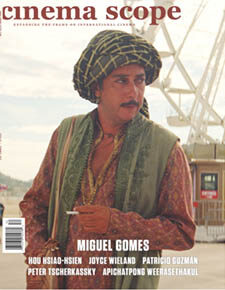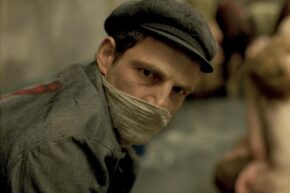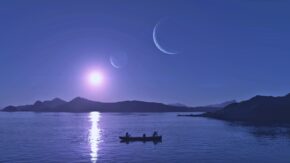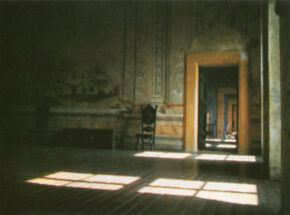CS63
Issue 63 Table of Contents
By Cinema Scope | 06/23/2015 | CS63, From Cinema Scope Magazine, Table of Contents
Christian Petzold’s Phoenix, Andrei Konchalovsky’s The Postman’s White Nights, Peter Strickland on The Duke of Burgundy and more...
Read More → Joyce Wieland: Word of Mouth
By Samuel La France | 06/23/2015 | CS63, Features, From Cinema Scope Magazine
By Samuel La France On the closing night of this year’s Images Festival, sisters Velvet and Lady Nite (collectively, 10,000 Horses) took the stage at St. Anne’s Parish Hall to score a trio of Joyce Wieland films with their “electro torch” compositions. The duo’s synths and ukulele transformed the soundtracks for Water Sark (1965) and…
Read More → Sleeping Giant (Andrew Cividino, Canada)
By Jason Anderson | 06/23/2015 | CS63, Festivals, From Cinema Scope Magazine, Spotlight
By Jason Anderson Almost 90 per cent of Canada is uninhabitable. Of those who live in the rest, the overwhelming majority live within 500 miles of the US border. So maybe it’s not so surprising that the nation’s filmmakers—themselves largely clustered in the same few square miles of Toronto, Vancouver and Montreal—regard the hinterlands with…
Read More → Cemetery of Splendour (Apichatpong Weerasethakul, UK/France/Germany/Malaysia/Thailand)
By Kong Rithdee | 06/23/2015 | CS63, Festivals, From Cinema Scope Magazine, Spotlight
By Kong Rithdee Midway into Cemetery of Splendour, Jenjira Pongpas visits the Shrine of the Two Goddesses with her American husband to make offerings: she gives the goddesses a cheetah figurine for blessings on her bad leg, a gibbon for her strong limbs, and a tiger for the strength of her new son, Itt, one…
Read More → Son of Saul (László Nemes, Hungary)
By Richard Porton | 06/23/2015 | CS63, Festivals, From Cinema Scope Magazine, Spotlight
By Richard Porton Dennis Lim’s Artforum dispatch from Cannes pauses briefly to ponder the merits of László Nemes’ Son of Saul and concludes that, either despite or because of Nemes’ “showboating” tendencies, it’s a film that will “spawn a thousand think pieces.” If the ruminations that follow will, I’m afraid, constitute one of the first…
Read More → The Assassin (Hou Hsiao-hsien, Taiwan)
By Jordan Cronk | 06/23/2015 | CS63, Festivals, From Cinema Scope Magazine, Spotlight
By Jordan Cronk The sounds of silence reverberate loudest in The Assassin, Taiwanese master Hou Hsiao-hsien’s first feature in eight years. The film’s opening image, of a donkey quietly grazing in a field, immediately suggests an acute awareness of natural ambience. This impression manifests itself as the most frequently felt resonance in a work largely…
Read More → Cock and Bull Stories: Miguel Gomes on Arabian Nights
By Mark Peranson | 06/23/2015 | CS63, From Cinema Scope Magazine, Interviews
By Mark Peranson Cinema Scope: Miguel Gomes, you need no introduction to the readers of this magazine. Here you are back in Cannes with a three-part, six-hour epic inspired by the Arabian Nights. There’s general consensus among critics that it’s one of the best things here, but some people seem concerned that in today’s distribution…
Read More → Implications of a Totality: Frames for the Films of Joseph Bernard
By Phil Coldiron | 06/23/2015 | CS63, Features, From Cinema Scope Magazine
By Phil Coldiron In the decade spanning 1975 to 1985, visual artist Joseph Bernard completed more than 100 films in Super 8mm. Frustrated by a lack of funds, materials, and attention, he withdrew from filmmaking and, ultimately, public art production entirely, though he remained on the faculty at Detroit’s College for Creative Studies, retiring in…
Read More → In Dreams Begin Responsibilities: The Films of Patricio Guzmán
By Max Nelson | 06/23/2015 | CS63, Features, From Cinema Scope Magazine
By Max Nelson At one point in his new film The Pearl Button, Patricio Guzmán visits a friend’s painting studio and asks the artist to unroll one of her current projects: an immense, to-scale cutout model of Chile. The country is so long and narrow, Guzmán recalls, that it could never fit on a single…
Read More → Italians Abroad: Youth, Mia Madre, Tale of Tales, The Other Side
By Celluloid Liberation Front | 06/23/2015 | CS63, Festivals, From Cinema Scope Magazine, Spotlight
By Celluloid Liberation Front “To support Italian cinema is a crime against humanity.”—Franco Maresco Even more provincial and mediocre than the three Italian films in the Cannes Competition was the reaction of the mainstream media in Italy when they woke up to what they perceived and reported to be an unforgivable affront. None of their…
Read More → Cannes 2015: My God, It’s Full of Stars!
By Mark Peranson | 06/23/2015 | CS63, Festivals, From Cinema Scope Magazine, Spotlight
By Mark Peranson Well, at least the weather was good. Every year another leak threatens to spring in the dam, but the Festival de Cannes is not going to die a death of a thousand, or even a million, cracks. I started to vomit up the Kool-Aid at least a decade ago, and harbour no…
Read More → Issue 63 Editor’s Note
By Mark Peranson | 06/23/2015 | Columns, CS63, From Cinema Scope Magazine
Let me begin with a series of overdue apologies, because film critics never apologize, and we all know they make mistakes on a regular basis. First, I apologize for the late arrival of this magazine, especially to our valued overseas supporters—but I’m not in charge of Canada Post, yet, so the blame really lies elsewhere.…
Read More → Canadiana | What Does It All Mean? Canada’s All-Time Top Ten List
By Adam Nayman | 06/23/2015 | Columns, CS63, From Cinema Scope Magazine
By Adam Nayman TIFF All-Time Top Ten 1. Atanarjuat: The Fast Runner (Zacharias Kunuk, 2001) 2. Mon oncle Antoine (Claude Jutra, 1971) 3. The Sweet Hereafter (Atom Egoyan, 1997) 4. Léolo (Jean-Claude Lauzon, 1992) 5. Jésus de Montréal (Denys Arcand, 1989) 6. Goin’ Down the Road (Don Shebib, 1970) 7. Dead Ringers (David Cronenberg, 1988)…
Read More → Film/Art | Oh, Broodthaers, Where Art Thou?
By Andrea Picard | 06/23/2015 | Columns, CS63, From Cinema Scope Magazine
By Andréa Picard “Fiction captures the truth, and at the same time, what it conceals.”—Marcel Broodthaers “All the World’s Futures” is a pretty grim supposition, if not a dismal, somewhat dizzying “iterative choreography,” to quote this year’s Venice Biennale curator Okwui Enwezor. Those futures are in fact meant to be a barometer of the present,…
Read More → Global Discoveries on DVD | Then and Now, Hither and Yon
By Jonathan Rosenbaum | 06/23/2015 | Columns, CS63, From Cinema Scope Magazine
By Jonathan Rosenbaum Saddled with its stupidly inappropriate and misleading reissue title Betrayed, William Castle’s justly celebrated Z-budget 1944 thriller When Strangers Marry—shot in seven days for $50,000, and released by Monogram Pictures—has finally become available on DVD in the Warner Archive Collection. And part of its special power is both its similarity to and…
Read More → Exploded View | Gregory Markopoulos
By Chuck Stephens | 06/23/2015 | Columns, CS63, From Cinema Scope Magazine
By Chuck Stephens One of the most extraordinary American experimental filmmakers of the 20th century, Gregory Markopoulos (1928-1992) also remains one of its most elusive. For more than a decade before his death, Markopoulos—who had emigrated to Europe in 1967, withdrawn his films from circulation, and asked that a chapter on his work be…
Read More → Mad Max: Fury Road (George Miller, Australia/US)
By Christoph Huber | 06/22/2015 | CS63, Currency, From Cinema Scope Magazine
By Christoph Huber “Who’d have thought 20 years ago that people would one day be nostalgic for the apocalypse?” Australian director-writer-producer George Miller mused before the release of the fourth installment of his most famous creation, which barrelled into theatres under the name Mad Max: Fury Road, showing out of competition in Cannes at the same time…
Read More → 
















